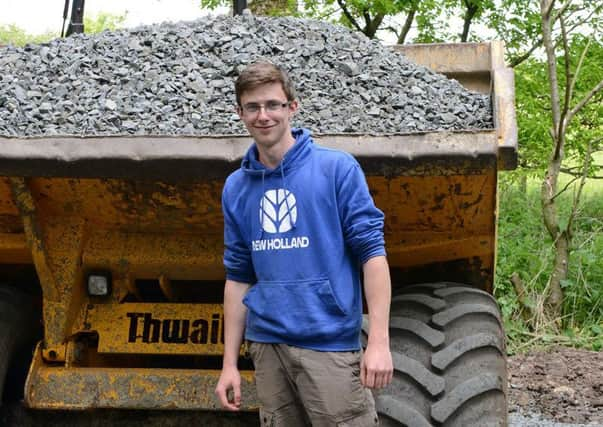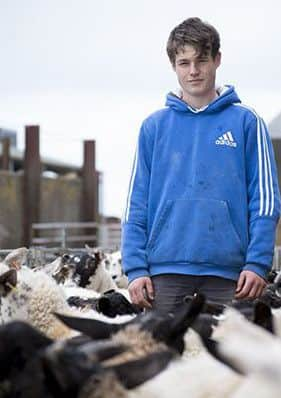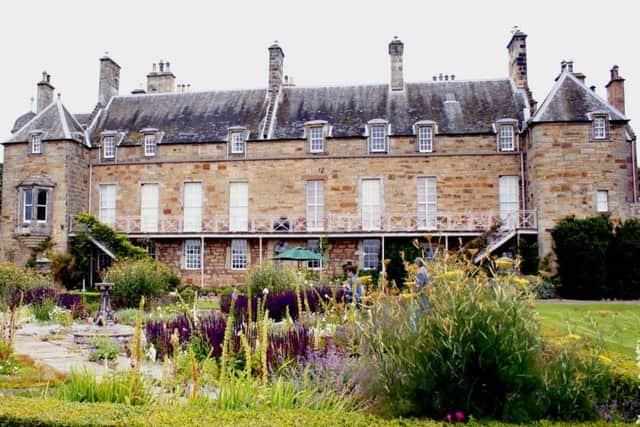Balcaskie Estate in Fife trains recruits for the future


Should you pick the best of a bad bunch? Or look at alternatives to find the cream of the crop?
That’s the situation Balcaskie Estate in the East Neuk of Fife has toiled with in recent years.
Advertisement
Hide AdAdvertisement
Hide AdBut it has come up with a unique way of solving the problem and finding recruits who are both eager to learn and up to the job.


The estate has launched a modern apprenticeship programme to train staff for the future.
It already has two success stories on its hands.
Cameron Betts started working with the team in 2016 and spent just over a year learning his trade.
He left the estate in October last year with his SVQ Level 2 in Estate Maintenance.


Advertisement
Hide AdAdvertisement
Hide AdHe has since worked on a livestock farm in Berwickshire and another estate in Fife.
And Craig Hamilton left in June this year, after gaining a job with the council’s estates department.
Seeing the youngsters going on to great success has delighted farm and estate factor Sam Parsons, who has worked at Balcaskie for around 10 years.
He said: “Cameron and Craig were valuable members of the team, assisting with all aspects of the estate – from construction, hedge planting and livestock management to arable work and volunteering on RHET school visits.
Advertisement
Hide AdAdvertisement
Hide Ad“They also enabled us to reduce our reliance on contract work, saving us time and money.
“Their subsequent success shows the apprentice scheme works.
“They gain the experience they need to secure a job in the industry.
“And as an unintentional, but welcome, benefit, our 20-strong workforce are motivated to teach their skills and are now keen to develop their own.”
Advertisement
Hide AdAdvertisement
Hide AdAlthough Cameron and Craig have now moved on, Sam hopes the Balcaskie recruits will eventually return to the fold.
He explained: “We want our apprentices to develop their skills elsewhere but the hope is they will remember the start we gave them and return to the estate in future.
“We have an experienced but ageing workforce; the average age is 50.
“In 10 to 15 years’ time we’ll be facing multiple retirements, so it’s important we have a succession plan.
Advertisement
Hide AdAdvertisement
Hide Ad“Our apprentices will increase the pool of talented and skilled workers to help safeguard our future.
“Unfortunately, schools tend to consider agriculture at the bottom end of the pile as a career.
“We want to encourage more youngsters into the industry and to ensure they see it as a career, rather than just a job.
“The vast majority of candidates who come to us have no background in farming and have little or no passion for it.
Advertisement
Hide AdAdvertisement
Hide Ad“They come because someone suggested they should give it a go.
“I believe that schools need to actively encourage careers in the land-based sectors. That fundamental shift needs to happen.”
Anyone who thinks it is an easy, unskilled job is very much mistaken.
Today, farms have far smaller workforces and the job is much more complex with the introduction of new farming methods and technology, each requiring a greater breadth of skills.
Advertisement
Hide AdAdvertisement
Hide AdThe core of Balcaskie’s business is a mixed farm producing cereals, beef and lamb. However, in recent times, it has also diversified to include renewable energy, commercial and residential property lets, a pub and an events space.
Environmental management and gardening also make up a significant portion of the workload.
Modern apprentices are trained in every aspect of estate management, meaning they leave with a broad range of skills.
And its latest two recruits – in the gardening and estate teams – are discovering just how much is involved.
Advertisement
Hide AdAdvertisement
Hide AdIt would be fair to say, though, that 16-year-old Hunter Parsons has more to prove than most – his dad is the estate factor!
That didn’t mean he was given an easy path into the industry though – in fact, he probably had it harder.
Sam added: “I don’t do the interviews – it’s the estate staff who work with the apprentices who do that.
“It’s a two day interview and they have to work with every member of the team.
Advertisement
Hide AdAdvertisement
Hide Ad“It was Hunter’s choice to do it and I probably gave him the hardest time!
“Within three weeks, he was shearing the sheep after doing a two-day course.
“Apprentices don’t just do the donkey work – they’re getting a lot of experience under their belts.”